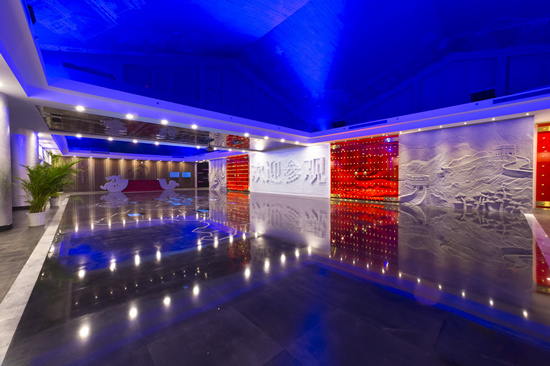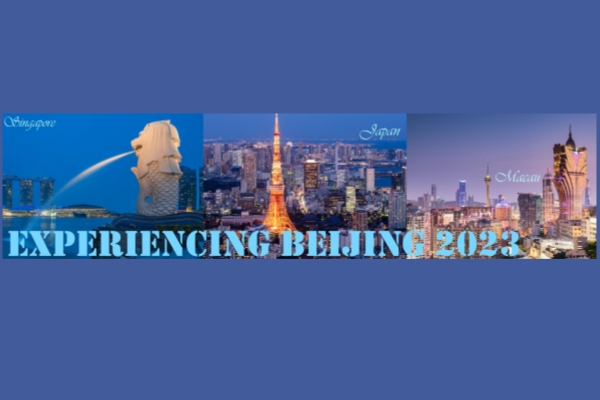Forum aims to establish Beijing as focal point of national culture
The first Beijing Culture Forum, which opened on Monday, is expected to fuel cultural innovations and help establish the capital as the nation's cultural center.
With the theme of "inheritance, creativity and mutual learning", the forum included an opening ceremony, a main forum and four subforums, which focused on cultural inheritance and evolution, cultural exchange and cooperation, the integrated development of culture and technology, and the creation and dissemination of high-quality literary and artistic works.
Tours for forum participants along Beijing's Central Axis and visits to the Shougang Industrial Park and Grand Canal Museum, as well as visits to other cultural attractions in the capital, were also arranged for the two-day event.
Huang Kunming, a member of the Political Bureau of the Communist Party of China Central Committee and head of the Publicity Department of the CPC Central Committee, urged cultural workers to put people front and center, carrying out high-quality cultural development.
"We should deepen dialogues among civilizations and strengthen the cultural ties between China and other countries," Huang said. "Exchanges and mutual learning are encouraged to tell the stories of China and present the image of Chinese civilization."
Cai Qi, Party secretary of Beijing, addressed the opening ceremony, saying that the forum aims to grow into a platform for displaying outstanding achievements in the city's cultural construction, exchanging experiences in the field, conducting collaboration in cultural innovation and development, and telling China's stories to the world.
Minister of Culture and Tourism Hu Heping gave a speech that emphasized the importance of integrating culture and tourism, saying that diversified cultural resources should be used to upgrade tourism products and enhance tourists' travel experience.
"Meanwhile, tourism development can help revitalize China's fine traditional cultures, carry on the revolutionary culture and promote advanced socialist culture," Hu said, adding that museums, galleries, libraries, theaters and other cultural spaces should be developed into popular tourist destinations.
The event also noted 10 major cultural events in the capital's effort to build itself into a national cultural center. These included an art performance at the National Stadium in Beijing titled The Great Journey, which was held to celebrate the 100th anniversary of the founding of the Communist Party of China; the archaeological discovery made at the nearly 3,000-year-old city ruins in the Liulihe site in Beijing's Fangshan district; and the first China Internet Civilization Conference in Beijing.
The progress made by Beijing in applying to have the city's Central Axis put on UNESCO's list of World Cultural Heritage Sites, and the fact that the business income of Beijing's cultural industries was 1.76 trillion yuan ($261 billion), a year-on-year increase of 17.5 percent, were also highlighted among the 10 major cultural achievements.
In a roundtable discussion, An Laishun, vice-president of the International Council of Museums, said that Beijing, a city that has 204 museums, seven World Cultural Heritage Sites and more than 3,800 unmovable cultural relics, has the potential to grow into "a city of museums".
Shao Tianshuai, a Kunqu Opera actress of the Northern Kunqu Opera Theatre in Beijing and a forum participant, said that as Beijing has made great efforts to build itself into China's cultural center, Kunqu Opera performers get to enjoy a better environment for creating high-quality works.
The Northern Kunqu Opera International Cultural Art Center, which consists of five theaters and a museum that displays the art form's evolution, is under construction in Beijing's Xicheng district, a move that Shao believes will bring the time-honored art closer to people of various age groups.
Shao said she was most interested in the discussion during the forum on how to conduct international cultural exchanges and how to carry out the integration of traditional arts and new business forms.
"I'm inspired by the event to continue to play an active role in Beijing's cultural construction, showing the world the charms of Kunqu Opera," she added.

 Responsibilities of the SOCAAC
Responsibilities of the SOCAAC Experiencing Beijing 2023
Experiencing Beijing 2023